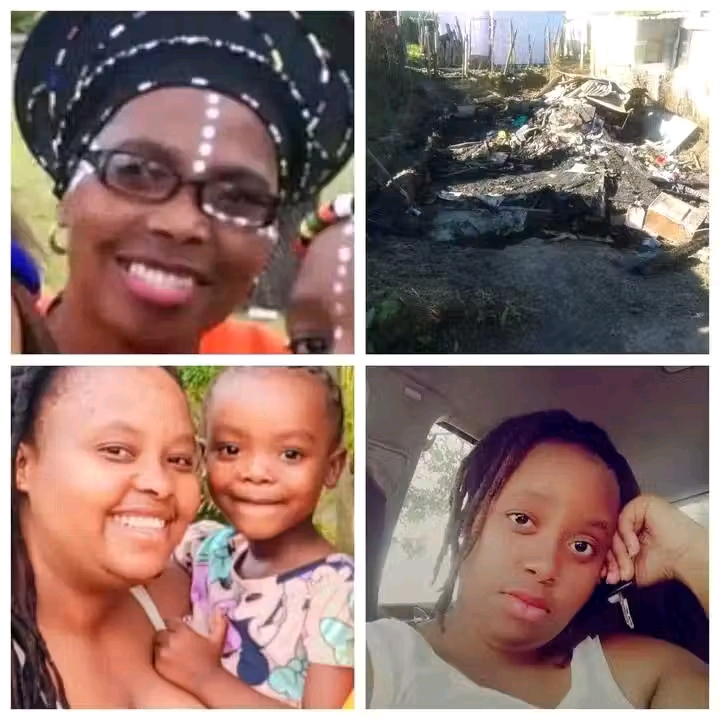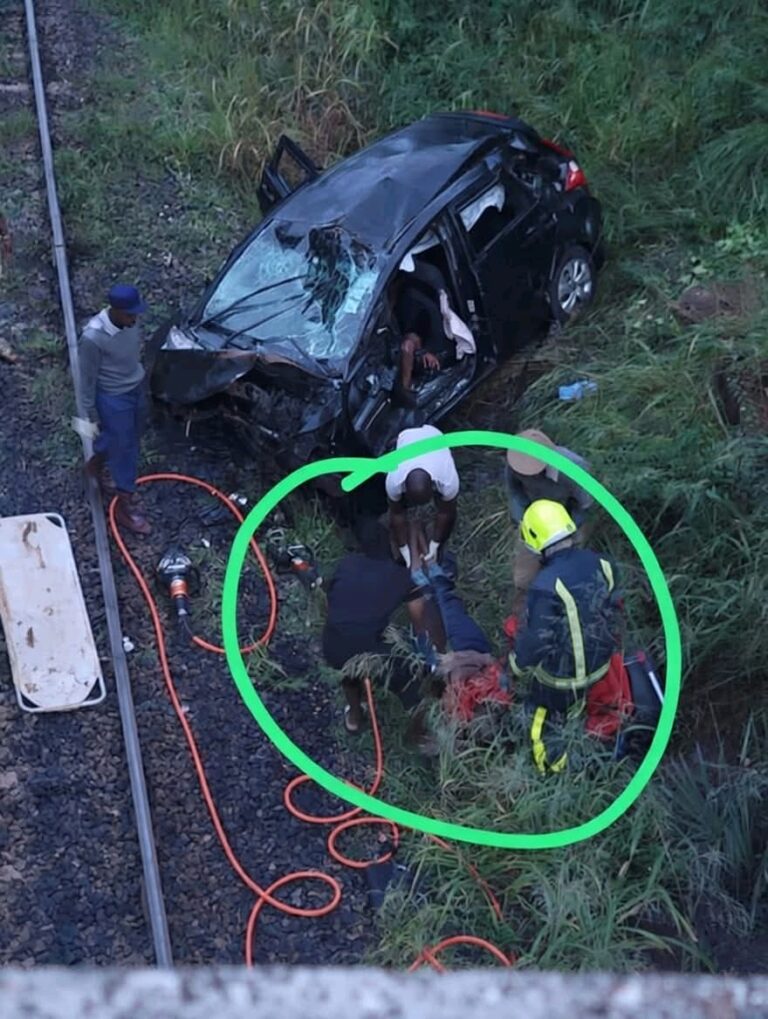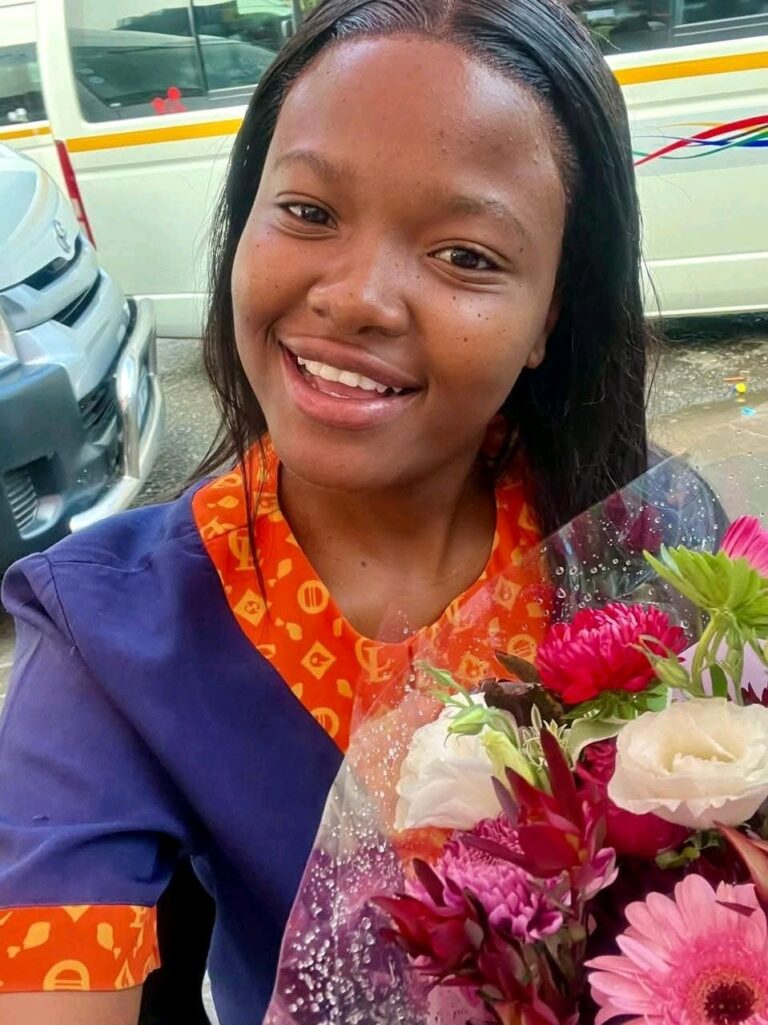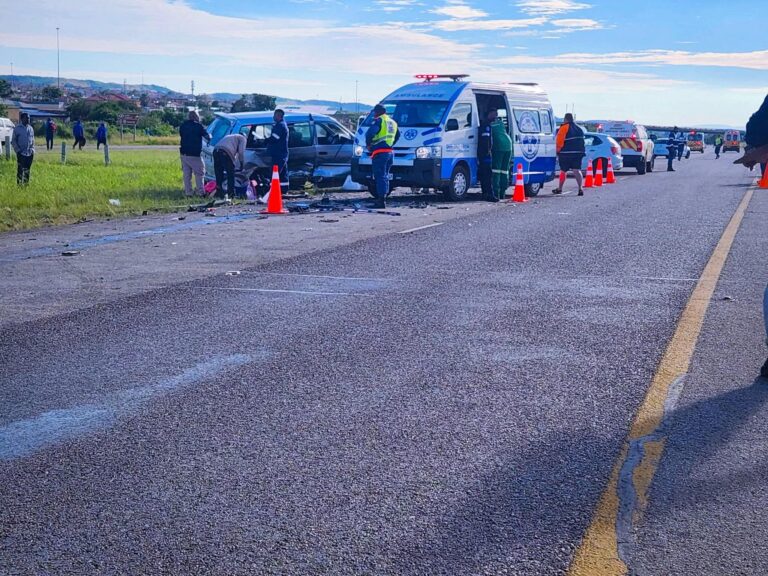
Heartbreaking Loss of Three Generations
On 27 April 2025, the community of Mdantsane, East London, in South Africa’s Eastern Cape, was shaken by a horrific act of violence that claimed the lives of three family members. Kholosa Mzendana, 34, her five-year-old son Akhanani, and her 61-year-old mother Ntombizanele Mzendana were allegedly murdered in an attack that has left the country in mourning.
According to reports, the three victims were burned alive inside their shack. It is alleged that Kholosa’s boyfriend locked them inside the home before setting it alight. The motive behind the attack has not been fully confirmed, but early indications suggest that this may have been yet another brutal act of gender-based violence (GBV) in South Africa.
A Gruesome Crime
After allegedly committing the horrific crime, the suspect reportedly attempted to set his own shack on fire, seemingly in an effort to take his own life. However, this attempt was unsuccessful. Following that, he handed himself over to the authorities, where he was arrested and is expected to face charges of murder and arson.
The deaths of Kholosa, Akhanani, and Ntombizanele have sent shockwaves through the local community, with neighbors expressing deep sorrow and outrage. The incident has added to the growing list of femicide and child murder cases in the country, where violence against women and children remains a national crisis.
Gender-Based Violence: A National Crisis
South Africa continues to grapple with alarming levels of gender-based violence and femicide. Despite numerous campaigns and government commitments, the statistics remain horrifying. Women, children, and even the elderly are being targeted, often by people they know and trust.
The murder of Kholosa and her family is not an isolated incident. It forms part of a larger pattern of violence that women in South Africa face daily. Activists have long argued that the government must declare GBV a National Disaster, requiring the full weight of state resources to combat it.
The hashtags circulating on social media—#WomenForChange, #SayHerName, #UnburyTheTruth, #EnoughSaid, and #AmINext—reflect the frustration, anger, and collective grief of many South Africans who are demanding urgent action.
A Call for Justice and Change
As the country mourns the loss of these three innocent lives, calls for justice grow louder. Civil society organizations, women’s rights groups, and everyday citizens are urging the justice system to ensure that the perpetrator is held accountable for his actions.
However, many argue that justice is not only about convictions—it is about prevention. South Africa urgently needs comprehensive interventions, including better policing of domestic violence cases, support for victims, education around toxic masculinity, and community programs to address the root causes of violence.
Conclusion
The deaths of Kholosa, her son Akhanani, and her mother Ntombizanele are a painful reminder of the human cost of South Africa’s GBV epidemic. These were not just names; they were lives, dreams, and futures cut short by senseless violence. Their story must not be forgotten.
Rest in power to Kholosa, Akhanani, and Ntombizanele.




